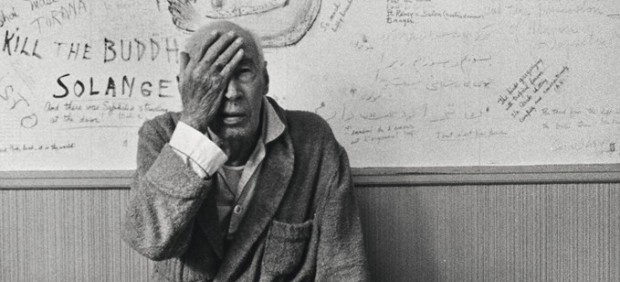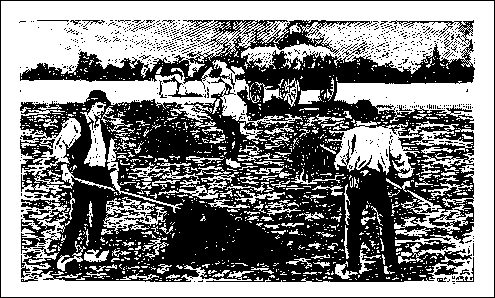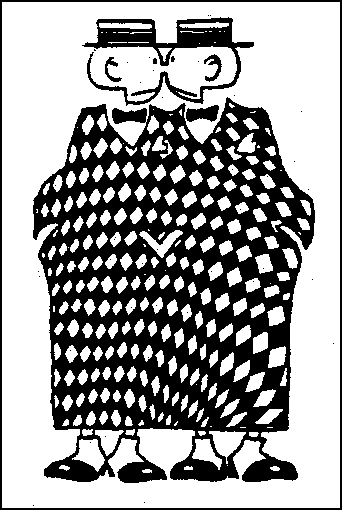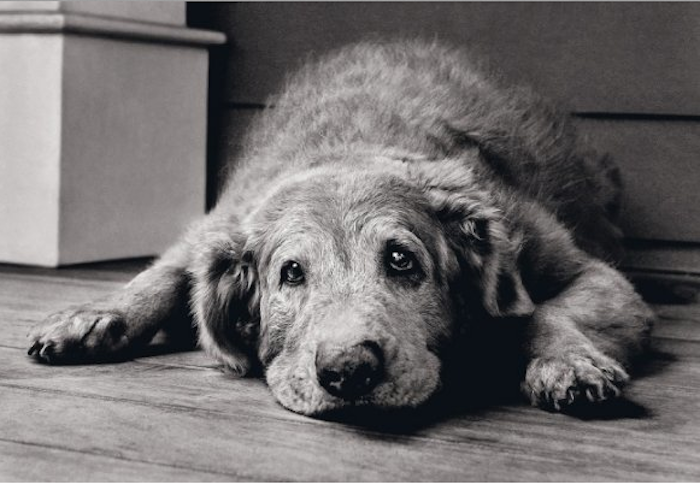
Tom Stark and one of the reporters shoved on the tail end and I heaved on the front end and held my breath and we got Buck the seven feet to the Boss. The Boss braced himself, and we heaved up the front end, and the Boss got a gust of Buck.
That gust was enough.
"God's sake, Pappy," the Boss demanded as soon as he had mastered his spasm, "What you been feeding this dog?"
"He ain't got any appetite," Old Man Stark said.
"He ain't got any appetite for violets," the Boss said, and spat on the ground.
"The reason he fell," the photographer observed, "was because his hind legs gave down. Once we get him propped we got to work fast."
"We?" the Boss said. "What the hell you mean we. You come kiss him. One whiff would curdle milk and strip a pine tree."
reading
S. J. Perelman
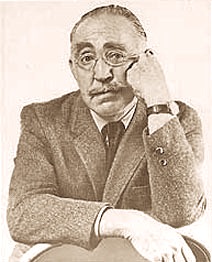
I doubt if anyone short of Dante could describe the cookery at the Western & Occidental Hotel; I have heard it defended on the ground that it is no worse than the fare in any British colonial hotel, which is like saying that measles is no worse than virus pneumonia. The meal usually led off with an eerie gumbo, identified as pumpkin soup, puce in color and dysenteric in effect. This was followed by a crisp morsel of the fish called selangor for want of a more scathing term, reminiscent in texture of a Daniel Green comfy slipper fried in deep fat. The roast was a pale, resilient scintilla of mutton that turned the tines of the fork, garnished with a spoonful of greenish string and a dab of penicillin posing as a potato. For dessert there was gula Malacca, a glutinous blob of sago swimming in skimmed milk and caramel syrup, so indescribably saccharine that it produced a singing in the ears and screams of anguish from the bridge-work. As the diner stiffened slowly in his chair, his features settling into the ghastly smile known as the risus sardonicus, the waiter administered the coup de grâce, a savory contrived of a moldy sardine spread-eagled on a bit of blackened toast. The exact nature of the thimbleful of rusty brown fluid that concluded the repast was uncertain. The only other time I saw it, awash in the scuppers of the President Monroe, the sailors called it bilge.
reading

My career of sleeping through seminars continued in graduate school. One time, I was seated next to the Associate Director of our institute, a tough-talking biochemist who was reputed to have mob connections. Everyone referred to him as Big Al. Realizing that I was seated in a sensitive location, I fought to retain consciousness as the speaker droned on and on, and actually made it to the third slide before I retired to never-never land, slumping sideways at the same time so as to use Big Al for a pillow. When the seminar ended I awoke, refreshed as always, and looked blinkingly around. Turning to my left, I made eye contact with Big Al, who was fixing me in a stare that would freeze helium. "Ya feel bedduh now?" he growled.
Fortunately, Big Al was not on my Ph.D. thesis committee, and in due course I earned that key of entry into the academic world. It has been a long and rewarding career since then. Several years ago, I underwent a medical procedure on one eye. I was told I must sleep sitting up for ten days or so. No problem. I had already had 35 years of practice.
Beginning grad students regularly marvel at the ability of us veterans to spend an entire seminar, qualifying exam, or thesis defense in the arms of Morpheus, and then rouse to ask a seemingly relevant question at the end. Little do they suspect that this ability is the very secret, the kernel, the Zen of the professorial vocation.
article
Charles Bukowski
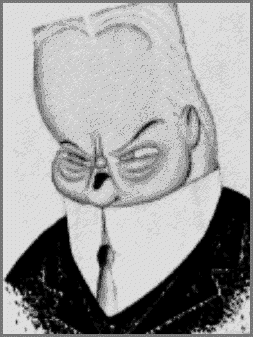
They got up and began packing out.
"Not you, Henry," said Mrs Fretag.
I sat in my chair and Mrs Fretag stood there looking at me.
Then she said, "Henry, were you there?"
I sat there trying to think of an answer. I couldn't. I said, "No, I wasn't there."
She smiled. "That makes it all the more remarkable."
"Yes, ma'am..."
"You can leave, Henry."
I got up and walked out. I began my walk home. So, that's what they wanted: lies. Beautiful lies. That's what they needed. People were fools. It was going to be easy for me. I looked around. Juan and his buddy were not following me. Things were looking up.
